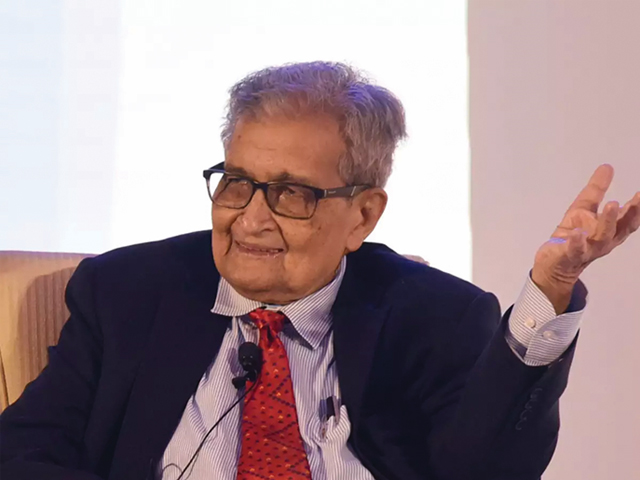Fabulous Personalities- 15

Dr.Sundar ram MBBS., MD
martya Sen(Amartya=immortal) (born on November 3, 1933, Santiniketan, India), an Indian economist was awarded the 1998 Nobel Prize in Economic sciencesfor his contributions to welfare economics and social choice theory and for his interest in the problems of society’s poorest members. Sen was best known for his work on the causes of famine,which led to the development of practical solutions for preventing or limiting the effects of real or perceived shortages of food.
EARLY LIFE
Amartya Sen was born to Ashutosh Sen and Amita Sen on November 3,1933 in a Hindu Baidya family in Bengal,British India. His father was Professor of Chemistry at Dhaka University and his mother was the daughter of Kshiti Mohan Sen ,the eminent Sanaskritist and scholar of ancient and medieval India,who was a close associate of Rabindranath Tagore. He began his schooling in Dhaka in 1940 and then was admitted to
Shantiniketan,where he completed his school education. In his own admission in his autobiography,Shantiniketan was the place which stressed cultural diversity and embraced cultural influences from the rest of the world, and its progressive features played a massive role in shaping up his career.
EDUCATION AND TEACHING CAREER
Sen was educated at Presidency college in Calcutta(now Kolkata). He went on to study at Trinity College, Cambridge, where he received B.A(1955) and M. A(1959) and a Ph.D ,the same year. He taught a number of universities in India and England, including the Universities of Jadavpur and Delhi, the University of London and the University of Oxford before moving to Harvard University in 1988 where he was professor of Economics and Philosophy. In 1998,he was appointed master of Trinity College, Cambridge position he held untill 2004,when he returned to Harvard as Lamont University Professor.
CONTRIBUTIONS
Welfare economics seeks to evaluate economic policies in terms of their effects on the well being of the community. Sen who devoted his career to such issues, was called the “conscience of his profession”. He devised methods of
measuring poverty that yielded useful information for improving economic conditions for the poor. Sen’s intrest in famines temmed from personal
experience. As a nine year old boy, he
witnessed the Bengal famine of 1943, in
which three million people perished.This staggering loss of life was unnecessary,
he later concluded. He believed that there was an adequate food supply in India at that
time but that it’s distribution was hindered because particular group of people-in this case rural labourers-lost their jobs and therefore their ability to purchase the food. Sen revealed that in many cases of famine, it was not about reduced food availability but a number of social and economic factors led to starvation among certain groups in society. He believed that in order for economic growth to be achieved, social reforms -such as improvements in education and public health -must precede economic reform.
AWARDS AND HONORS
He received over 90 honorary degrees from universities around the world. Some of the notable awards include
- Adam Smith Prize in 1954
- Nobel Memorial Price in Economic Sciences in 1998
- Bharat Ratna , the highest civilian award in India in 1999
- Lenotief Prize in 2000
- Lifetime Achievement Award by the Indian Chamber of Commerce,2004
- National Humanities medal, 2011
- Chevalier of the French Legion of Honour in 2013
- Princess of Asturias award in 2021
He has served as the president of the the International Economic Association (1986-1989), the Indian Economic Association (1989) and the American Economic Association (1994).
Sen has been called “the Mother Teresa of Economics” for his work on famine, welfare economics, the underlying mechanisms of poverty, gender inequality and political liberalism. He continues to inspire people in the field of Economics worldwide. Let his journey go on and on.






